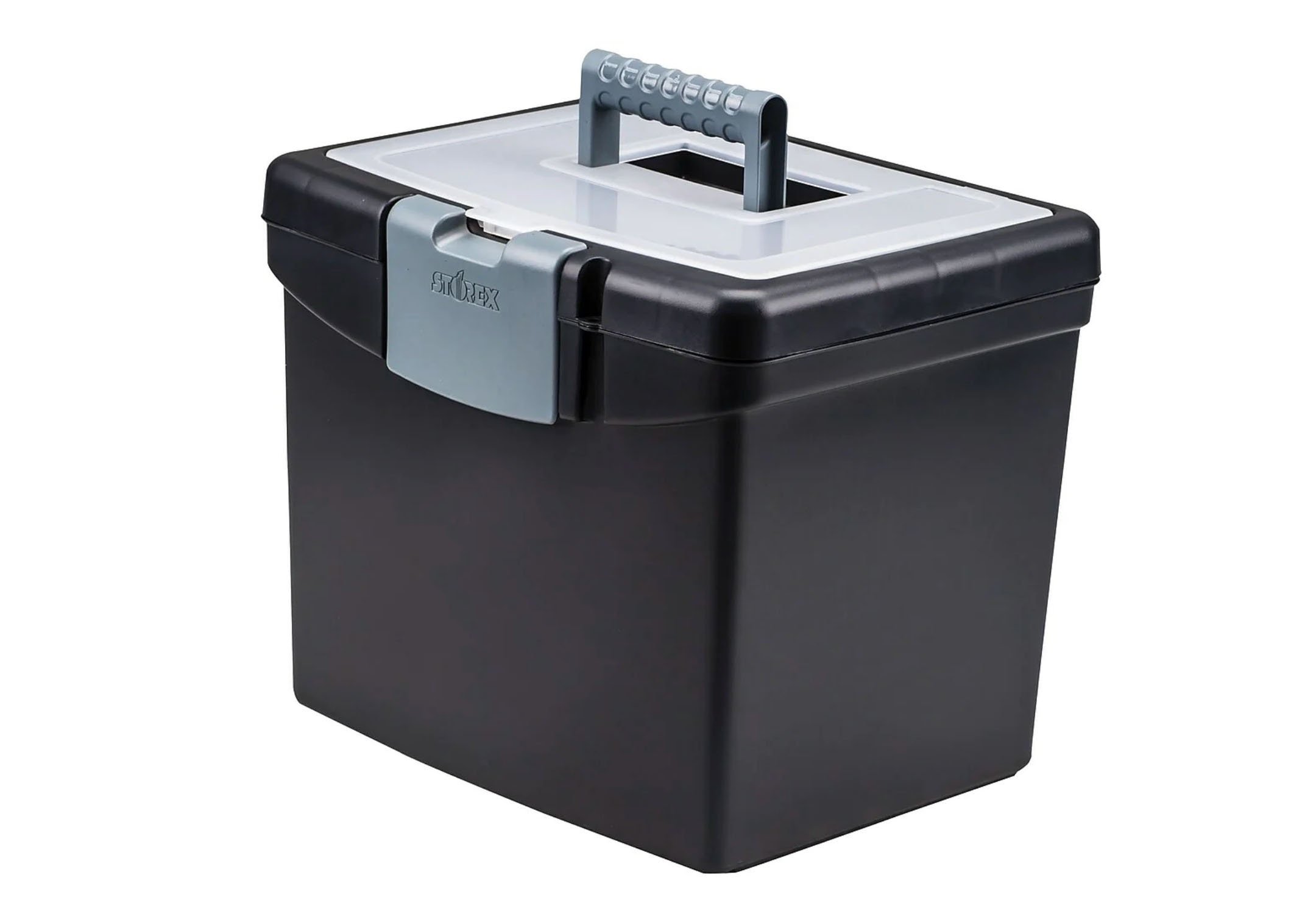You’ve Got Maaaiiil! Part II
Cards, letters, flyers, bills, announcements, invitations, bills, advertising, notices, bills, and more bills! If your mounting pile of mail overwhelms you, remember that you can take control and tame the “paper tiger.” Last week we looked at tossing the junk and taking action on a bill. This week we look at what to do with the bill after you’ve paid it.
Filing
Become a filer, not a piler. A vertical file system is superior to a drawer. The average family can make good use of a two-drawer filing cabinet. Buy hanging files that slide on the rails and don’t slump to the bottom of the cabinet. You can also buy plastic totes or desktop file caddies with hanging file folders already in them.
Add a notepad, pens, envelopes, and stamps to a file caddy or accordion folder and you have a portable office that lets you take care of business anywhere in the house.
I use a single colour for all of my file folders. Rely on clear labelling rather than colour coding to keep your file folders organized. Some people swear by colour coding, but that system fails the minute one colour isn’t readily available and another is substituted. “I’ll just use green for now....”
If you pay online, you can save or “print” a PDF of your payment confirmation information to file in a folder on your computer. I use the Chinese date format to organize my files. If I pay my hydro bill on February 18, 2023, I will name the file along with the date: hydro230218, for example. A list of files in a folder will automatically organize themselves chronologically. This is especially useful if you have a recurring monthly bill. If you get e-bills sent to you, include these in the folder on your computer.
Whatever filing system you use, consistency is key. A sloppy filing system will make files difficult or impossible to locate.
Archiving
Don’t keep bills and other receipts longer than you have to. I knew a lady (okay, it was my Mom) who kept phone bills going back 40 years. Don’t do this. Unless you have to keep your bills and receipts for business purposes, a casual online search suggests keeping bills for up to one year.
If you’re a small business owner, keep bills, receipts, and other support material for your taxes organized by year. Store these for six years plus the current year. Keep only the current year’s files in your filing cabinet and archive the other six year’s worth in a plastic tote(s) or bankers box(es) in a cool dry place. If you shred old files as you add the new every year, your tax files should always take up about the same amount of space. Don’t forget digital files. While they take up no physical space, an overstuffed computer will run slower.
Shredding
I recommend shredding anything with personal information such as names, addresses, account numbers, etc. Some may argue that if someone wants to steal your identity they can do it anyway but why make it easy for them. This also keeps your personal info from nosy neighbours. I once found a bag of my recycling dumped out across the street. A good quality cross-cut shredder is a useful addition to any home. Put all of your shredding into a clear or transparent blue bag to put by the curb.
If you have a large volume of shredding, you can use a professional shredding service. Remember, shredding services are only as honest as their employees. I once took a couple of banker’s boxes full of files to a professional service only to get email spam weeks later directly related to the material I had dropped off. Coincidence? Perhaps, but now I prefer to see my paper go through the machine. In London, London Business Machines offers DIY shred service by the hour. https://www.lbm.on.ca/shredding/
Go paperless
Contact utility, insurance, and other companies to arrange for e-bills to be sent to your email inbox instead of receiving paper bills in the mail.
If you bank online you can also pay online. Set up these payment accounts through your bank. If the bill is the same amount every month, consider automatic debit. Some businesses, like insurance, require a monthly automatic debit set-up, while others are optional. As a freelancer, I like to manage the payment dates of some of my bills.
We just talked about paying and filing a simple bill in this post. Some documents in your house need to be kept just a short time, some need to be kept forever. If you’re in doubt about how long to keep a bill, receipt or other document, do an online search and include your country in the search window.

